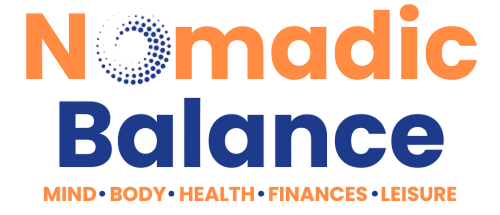Stress is a natural response to challenges, but chronic stress can negatively impact both physical and mental health. When left unmanaged, it can lead to serious health issues, including heart disease, digestive problems, and weakened immunity. In this article, we’ll explore how stress affects the body and provide effective strategies to combat it.
How Stress Affects the Body
When you experience stress, your body enters “fight or flight” mode. This triggers a series of physiological changes, including increased heart rate, rapid breathing, and the release of stress hormones like cortisol and adrenaline. While this response is helpful in short bursts, prolonged stress can harm multiple systems in the body.
1. Nervous System: Overactivation and Fatigue
Chronic stress keeps the nervous system in a constant state of high alert, leading to:
- Difficulty concentrating
- Anxiety and irritability
- Sleep disturbances
- Increased risk of burnout
2. Cardiovascular System: Increased Heart Risk
Prolonged stress can:
- Raise blood pressure
- Increase heart rate
- Contribute to heart disease and stroke
3. Digestive System: Gut Issues
Stress can disrupt digestion by:
- Causing stomach pain, bloating, and nausea
- Worsening conditions like irritable bowel syndrome (IBS)
- Affecting gut bacteria balance
4. Immune System: Weakened Defenses
Stress reduces the immune system’s ability to fight infections, making you more susceptible to colds and illnesses.
5. Musculoskeletal System: Tension and Pain
Stress often causes muscle tightness, leading to headaches, neck pain, and back pain.
6. Endocrine System: Hormonal Imbalance
The prolonged release of stress hormones can disrupt metabolism, increase appetite, and contribute to weight gain.
How to Combat Stress
Managing stress effectively is crucial for maintaining overall health. Here are some proven strategies:
1. Practice Deep Breathing and Meditation
Slow, deep breathing activates the body’s relaxation response, reducing stress hormones. Meditation helps calm the mind and improves emotional resilience.
Try this:
- Breathe in for four seconds, hold for four seconds, and exhale for six seconds.
- Spend 5–10 minutes in meditation daily.
2. Exercise Regularly
Physical activity releases endorphins, the body’s natural stress relievers. It also reduces cortisol levels.
Best activities for stress relief:
- Walking or jogging
- Yoga or stretching
- Strength training
3. Get Enough Sleep
Quality sleep helps the body recover from stress. Aim for 7–9 hours of rest per night.
Tips for better sleep:
- Avoid screens before bed
- Maintain a consistent sleep schedule
- Create a relaxing bedtime routine
4. Eat a Healthy Diet
Certain foods can help lower stress levels.
Best stress-reducing foods:
- Dark chocolate (rich in antioxidants)
- Nuts and seeds (high in magnesium)
- Fatty fish (rich in omega-3s)
- Herbal teas (such as chamomile or green tea)
5. Limit Caffeine and Alcohol
Too much caffeine can increase anxiety, while alcohol may disrupt sleep and worsen stress over time.
6. Connect with Others
Social support is one of the best stress relievers. Talking to a friend, family member, or therapist can help you process emotions and find solutions.
7. Engage in Relaxing Activities
Hobbies and leisure activities provide a great escape from daily stress. Consider:
- Reading
- Listening to music
- Painting or drawing
- Gardening
8. Time Management and Prioritization
Feeling overwhelmed by responsibilities can increase stress. Organize your tasks by:
- Breaking large tasks into smaller steps
- Setting realistic goals
- Using a planner or digital tools to stay organized
Final Thoughts
Stress is a natural part of life, but chronic stress can be harmful if not managed properly. By incorporating healthy habits such as deep breathing, exercise, good sleep, and social connections, you can reduce stress levels and improve overall well-being. Prioritizing stress management will not only enhance your physical health but also lead to a more balanced and fulfilling life.

